Drawing from a multi-hued palette of 60s cool jazz, bossa nova, New Orleans swing, and bittersweet piano ballads, Vashti Summervill delivers a finely crafted set of original songs on her debut album as a solo artist.
While Summervill is classically trained (holding both a BA and MM in vocal performance) and has lived a life steeped in music, she had not been drawn to write her own songs until early 2017. Always a lover of jazz standards, Summervill began studying with pianist Jonny May (Lin Manuel Miranda.) It would not be hyperbole to say their work together changed her life.
Hypnotic, beguiling, and eminently timeless, Put My Love in a Picture will enchant both serious students of the jazz canon and folks who just dig a good tune equally.
We recently caught up with Summervill to learn more about her.
With the loss of your father at an early age, you took to music to help you. How much would you say playing piano at that time became a source of healing?
My father died when I was about 5. The summer I turned 8, my mom, sister and I had relocated to a new state. I think this was the fresh start my mom needed but we were suddenly away from our support network, namely all of my grandparents. Things continued to be a bit upside down in my world. We were still sad, we missed our grandparents and now I was the new kid in school with a weird name. It is important for me to interject here that I have an incredible mom who was doing the best she could to navigate being a young widow with two small girls.
We got a piano right after we moved and it became a life raft for me. I was immediately hooked. Fortunately, I had an eccentric first piano teacher who was open to teaching me how to create interesting sounds instead of focusing on learning to read music right out of the gate. She taught me how to play with simple chords in a way that made big, glorious sounds. It felt like I was making real music.
Death is such a difficult concept for young kids to understand. I would ruminate about it a lot and lived in constant fear of others I loved being suddenly gone from my life. There were lots of nights I would imagine catastrophes and cry myself to sleep. I feel like sitting down at the piano and creating these sound tapestries got me out of my head and sort of transported me to new places. I think it also gave me a sense of purpose as I started to feel good at something. Music absolutely became a source of healing and joy and has continued to do that for me throughout my life.
To what extent did you find music being a constant fixture growing up?
Once I got hooked on music, it was permanent. I spent hours noodling at the piano. I remember singing songs constantly as a child. I also have a mom who is a folk singer and songwriter and was always playing her guitar and singing.
I was in a small town and attended very small schools. My freshman year in high school I was in a general music class my with about 5 other girls. We had a young teacher who basically gave us freedom to design the class. We all decided we wanted it to be a vocal class. I had never thought of myself as a singer but decided to give it a go in this group. We all had to pick a solo to work on. The teacher had a small sound system set up and part of the class was teaching us how to use a microphone. I was terrified to sing into the mic and remember that right after I started practicing in front of the class for the first time, some kids from the hall began to gather at the door to see who was singing. While I had been given some feedback about my piano playing, this was the first feedback I had gotten that perhaps I could also be a vocalist. I think this was when I knew music would always be a core part of my identity.
I also listened to a lot of music as a teen. I was always drawn to amazing female vocalists. I remember my mom had an old 45 record of Linda Ronstadt singing Blue Bayou and I would play it over and over just to hear her vocals. To this day, there are certain songs and certain singers that just flip a switch in me and I say “THIS is why I want to sing.”
I was reading that you were highly involved in musical theater dating back to your college days. Was this period of time the cementing of your desire to further your musical career?
It absolutely was. There was a period of time when I lived for musicals. I loved the music, the stories, the costumes…all of it. I also loved the clever and intelligent use of lyrics and melody in so many of the classics. There was a time when I thought that was all I wanted to do. Now I think I want to write a musical as much as I want to be in one. Back then, I didn’t know that I wanted to write. I do think those experiences played a big role in shaping me as a lyricist.
What has residing in Boise done for you and your musical journey?
Boise has been a wonderful incubator for me as a human being and as an artist. It has been the perfect container for me to experiment with so many creative projects. I have probably taught over 1000 students music. I also had a children’s music theater company for a few years. I have used music to create community through projects like the Boise Intergenerational Choir. There were a lot of years where I used my skills to facilitate creative experiences for others and build community through the arts.
I have always thought of myself as a musician and a music educator but identifying as a composer is somewhat new to me. It is a mystery to me how people end up having some natural skill in specific areas. It’s also mysterious how we sometimes discover some of our skills. I had no idea that I could write lyrics and no idea that I wanted to write them until I was approached about a random project several years ago. A Boise piano teacher was given a nice publishing deal by a large publisher of educational piano music. They had signed him on to publish an entire book of his elementary piano pieces. They wanted him to add lyrics to his songs as many teacher use lyrics to teach the rhythm of a piece. He approached me and asked if I would like to try to write the lyrics. It ended up coming very easily to me and was a lot of fun. The end product was well received. This random Boise experience was instrumental in me beginning to write songs of my own and made me want to work hard to cultivate my skills.
I am at a place in my life now where I am pouring more of my energy into creating what I want to create as opposed to facilitating musical experiences for others. All of these experiences mentioned shaped the artist I am today and also helped make me a part of a larger community. Boise is a freakishly kind city. I value the depth of community I have here more and more each day. The love and support I receive here helps me keep chugging along on my musical journey.
You are heavily involved in your community and working to strengthen families and individuals themselves. What was the moment that sparked you to choose this incredible path within your life?
When I was teaching, I started to notice a change in my students. Lots more depression, anxiety and behavioral issues. At the same time, my own kids were hitting some rough waters. This is a hard world to grow up in. It is also a hard world to parent it. I was deeply changed by some of my personal experiences as a parent that I felt called to contribute to my community in new ways. I was looking for ways to combine my experience as an educator and my lived experience as a parent. I wanted to be the person we needed during our very dark and challenging times.
Unfortunately, things are not getting easier for people. I am passionate about the work that I am doing and feel a great sense of purpose. This might sound strange, but it actually feels appropriate and bonding to sometimes share my musical journey with the families I work with, especially with adolescents and young adults I am trying to build rapport with. Music is so essential to most of them that it becomes a tool for connecting. Even if kids don’t necessarily love my genre, I think they are inspired by seeing an adult creating and trying to put original stuff into the world. I think that when I share my music, it is also an example of an adult being vulnerable and might build trust and open the door for them to be more vulnerable and open with me. It is possible it makes me feel more human to my clients and less like a sterile professional. And while I deal with very serious situations, I think people appreciate some distraction with something a little lighter and being able to take a little breather from the challenges at hand.
I think it is worth noting that I have more energy to create music now that I am not teaching it to hundred of kids every week. Not only do I have more energy, it has become a vital counterbalance to the heaviness of my other work. I continue to be grateful for this outlet. And I wouldn’t give up my work as a musician or my work in mental health. Both are integral parts of me and my life’s purpose.
Working on Put My Love in a Picture you had to in some way deprogram yourself from the rigid teachings of the piano. Do you feel that it was necessary at times to still maintain some things to move forward?
I haven’t actually had to work to deprogram rigid piano teaching. Fortunately, I did not experience that. What I had to work to deprogram was some of my classical music training through an undergraduate and graduate degree in music/vocal performance. I will preface what I am about to say by letting you know that I am incredibly grateful for my training and especially for several teachers I had along the way. However, the structure of the programs I chose felt somewhat rigid and narrow in scope. It felt like there was one set of repertoire deemed appropriate and one definition of good vocal technique and beautiful sound. It almost felt like there were aspects of trying to make an art a science. I worked more to conform to those definitions and expectations than to discover the unique aspects of me waiting to be expressed.
There wasn’t much, if any, focus on creating original music or learning to improvise as a vocalist. I’m sure there are vocal jazz programs that do a great job at this and I’m pretty sure that most instrumental majors get more training in improvisation. I also hold the possibility that during that stage of immaturity, I wasn’t paying attention or fully accessing all that was being offered.
I am learning to experiment with more advanced piano improvisation but still waiting for some of that to “click” as a vocalist. Writing my own songs has definitely helped me expand my creative horizons.
However, I have some solid vocal technique and a strong music theory foundation that continues to serve me well. For example, I am so glad that I have the skill set to be able to notate lead sheets for all my session musicians. That sure made the process of recording this album easier. So yes…there is much from my training that is necessary to maintain. I just have to keep pushing myself to also expand in ways that serve the expression of who I am now.
Lyrically, how much of your past came to be an influence?
With the exception of my exposure to amazing lyricist through musical theater, my personal past didn’t influence my lyrics that much. My lyrics are more of an exploration of the ways I am currently trying to make sense of and walk through the world now.
What were some of the biggest takeaways from your recording process with the album?
There is so much to learn and that collaborations are so important. Bringing in fresh perspectives from people who didn’t know me brought my songs to life in ways that exceeded all my expectations. I knew that I needed to leave my home in Boise to do this. The group of Seattle based musicians who played on it are out of this world. I am so grateful for Marina Albero (piano), Paul Gabrielson (bass), Jerome Smith (trumpet and trombone), RL Heyer (guitar), Dean Schmidt (electric bass), Ben Smith (drums) and Sam Landsman (saxophone) for agreeing to play. I also learned what a really good producer can do. I am in awe of Sophie Price. I will never speak of this album as just mine. Without her brilliance and creativity this album would not have turned out as well as it did.
There is a breezy atmosphere within the album, primarily establishing a lounge-bar feel. How did you discover your appreciation for jazz?
Jazz is such a broad category. I think that through my love of musical theater, I was exposed to creators like George Gershwin, Cole Porter and Irving Berlin, and the Great American Song Book. It’s the standards I love. I love intelligent and clever lyrics and melodies meant to let a singer really sing. I love music that transports me to an era of Parisian Cafes filled with artists, writers, and musicians. Once platforms like Pandora and now Spotify came on the scene, I found myself always choosing radio stations with the name French Cafe or Hot Club in the title. If there is a vintage song I find myself wanting to sing, I can usually guess that Peggy Lee recorded it. I am fascinated by her dual role as a singer and as a songwriter. She wrote 270 songs in her life and during a time when it was a boys club.
What is next for you?
I will write and then write some more. I would like to catch up with Peggy Lee. I would like to create a large body of new work that sounds a bit like old standards with a modern twist. I would love for other people to record my songs or for some of my songs to be used in film. I will continue to practice, learn and stretch myself out of my comfort zone. And I will look for collaborators to partner with and learn from. I definitely plan on creating another EP or album soon.
Photo Courtesy: Christina Carlson


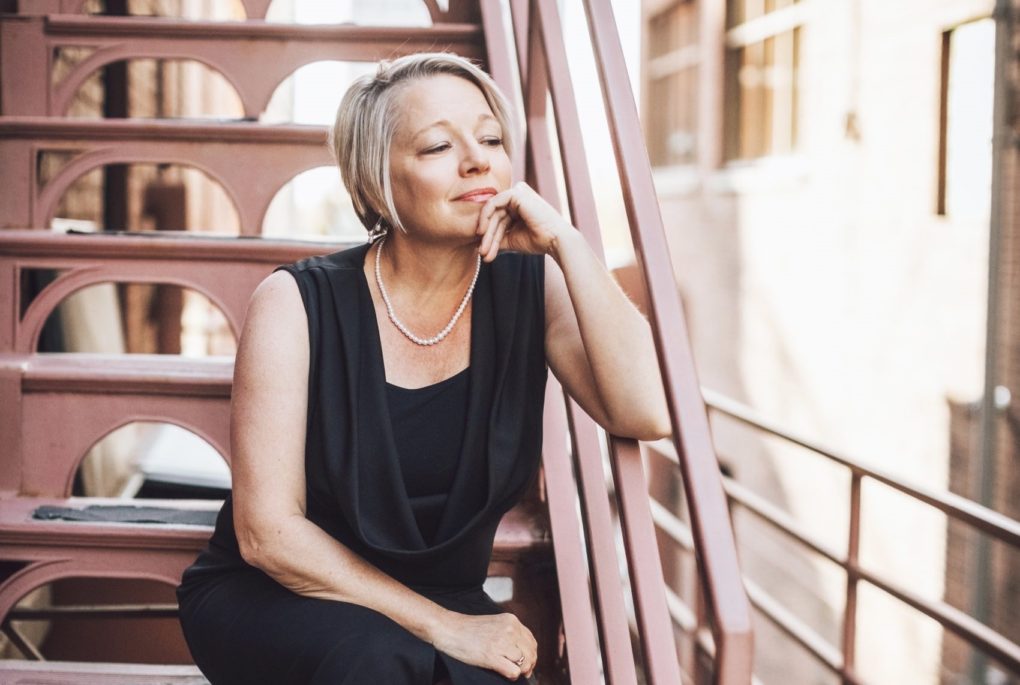
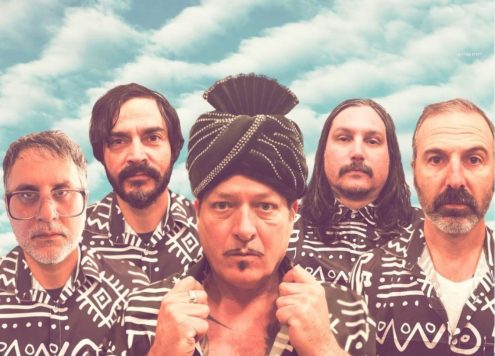
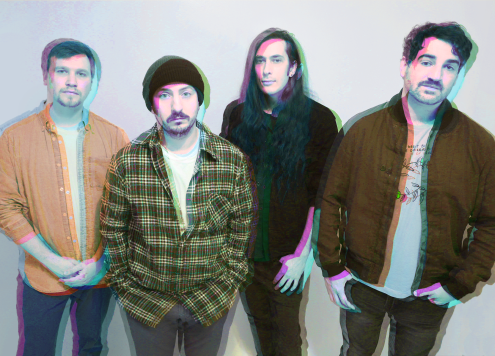
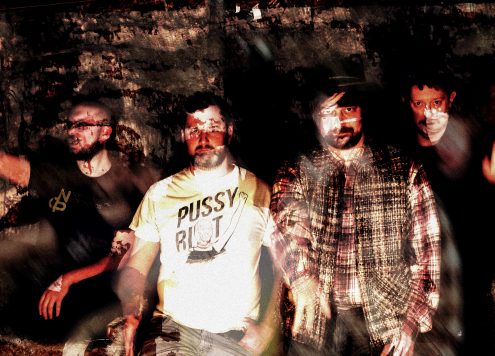

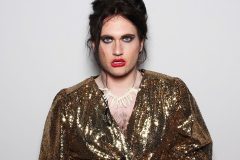
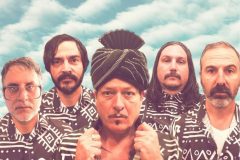
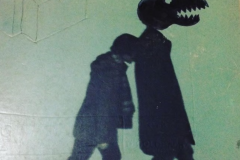
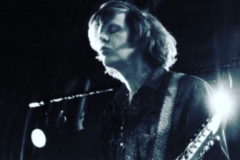

Social Media